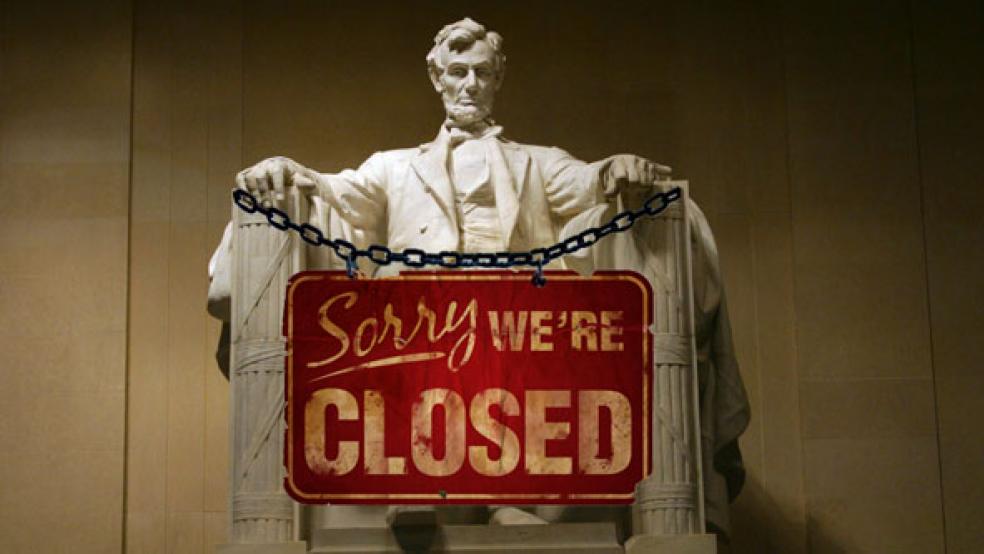House Speaker John Boehner said all he wants is a “conversation” about the budget and the debt ceiling, before the week-old government shutdown is joined by what could be a recession-inducing default later this month.
“I’m not drawing any lines in the sand,” the Ohio congressman said Monday at a morning news conference. “All we’re asking for is to sit down and have this conversation.”
RELATED: SOME IN GOP ADMIT TAKING WRONG PATH FOR RIGHT ISSUES
President Obama and Senate Majority Leader Harry Reid (D-NV) have refused to haggle over what they would sacrifice to temporarily reopen the government and increase the government’s $16.7 trillion borrowing authority
Their refusal to talk comes after the GOP tried to use these two events to force the Democrats into accepting a Tea Party-infused agenda. The House Republican gambit to defund Obamacare in order to keep the government running failed to intimidate them. Boehner has indicated that he would welcome a deal that cuts the cost of entitlement programs such as Medicare and Social Security.
But on Monday, he claimed that he would negotiate with an open mind. “There’s nothing on the table, there’s nothing off the table,” he said.
The new GOP message is that all it cares about is having a dialogue. “People expect to have negotiations when there are two differing sides,” House Majority Leader Eric Cantor (R-VA).
House Majority Whip Kevin McCarthy (R-CA) acknowledged that they might sound like a broken record. “You’re going to hear a similar tone from everybody that’s up here because it’s very simple—get into a room and solve our problems,” he said.
How desperate are Republicans for talks? A GOP aide told Roll Call that they’re considering a bill to form another super committee to hash out differences. This plan was hatched despite the failure of the super committee to reach any kind of agreement in 2011, leading to the binding sequestration cuts to defense and domestic discretionary programs.
RELATED: BOEHNER’S CREDIBILITY WANES AS SHUTDOWN CRISIS MOUNTS
But without any substance behind any new talks, it remains unclear how the debt ceiling would be increased—and most Republican voters view the possibility of a default as an acceptable, if not welcome, outcome, according to a new poll by the Pew Research Center.
This is where Wall Street and the American public split. Wall Street firms have been outspoken about the global damage caused by a potential default, a talking point that now dominates what Obama administration officials say.
For the moment, 54 percent of Republican voters—and 64 percent of Tea Partiers—are okay with missing the deadline to raise the debt ceiling, according to Pew.
This matters because it means GOP lawmakers have few political incentives to pass a debt ceiling increase from their base. When the country last needed to raise the debt ceiling in 2011—the deal that provoked the failed super committee—the polling reflected the exact same divide.
In other words, even if Republicans succeed in getting Obama to talk, there is no sign that anyone will find much room for agreement.





